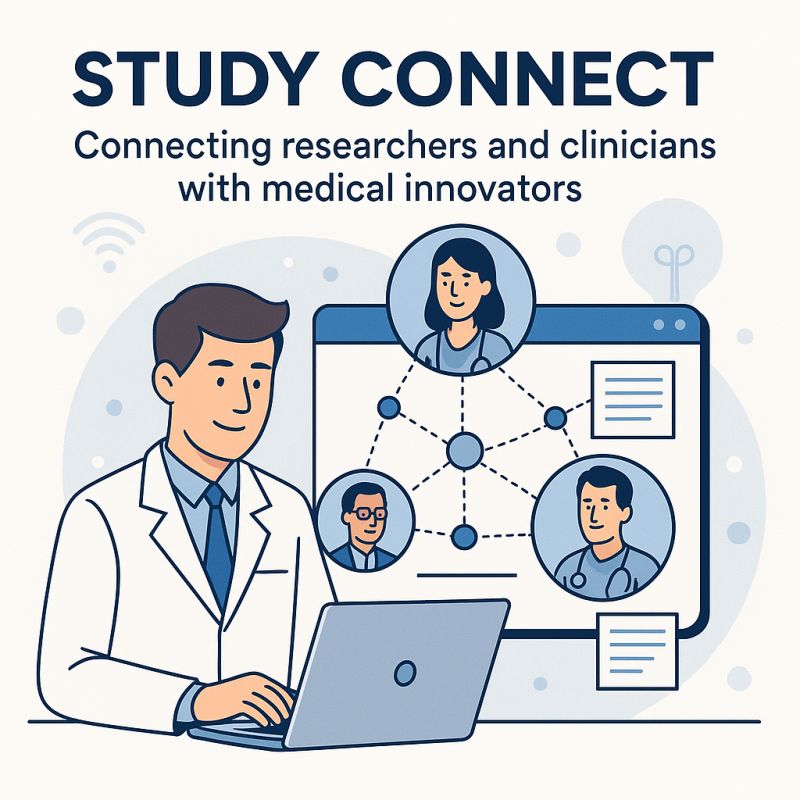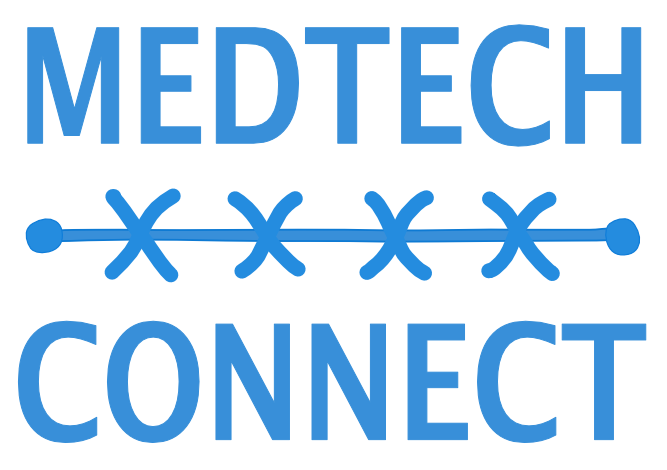Study Connect
Before I entered the MedTech industry, I had no idea how challenging clinical study logistics were. Even finding the right people to execute a study takes serious legwork. You need to identify the right clinicians with access to the desired patient population and persuade them to participate in your research. Then you need to sign agreements, and so on. It’s like enterprise sales, except closing these deals means spending more money.

What if clinicians and researchers came to you instead of having to scour the world searching for the right collaborators? That’s what Study Connect aims to do: to connect researchers and clinicians with the medical innovators and help them collaborate through an online portal. Think of it as a combination of Kickstarter and LinkedIn for the medical research community, with embedded tools that enable sponsors, researchers, and hospital administrators to manage studies. They’re raising a small $200k angel round of funding.*
Matthew Mace is the president and co-founder of Study Connect Inc., his second business venture. Matthew has a medical background and experience in multiple Medtech companies, including Abbott, and currently sits on the board of Precision Cardiovascular.
Matthew’s goal with Study Connect is to generate visibility and collaboration around studies by serving as a nexus between innovators developing products, researchers, and hospitals. As I mentioned earlier, these groups require considerable effort to assemble and launch a study. That work doesn’t end with signing agreements. Typically, study sites need to recruit qualified patients, and various steps must be scheduled and completed to advance the study. Study Connect aims to facilitate studies, from ideation through to the publication of research papers and regulatory submission.
If you examine other study platforms, such as CiteLine or TrialScreen, you will find that they focus on recruiting participants for studies. While patients are essential, they are only part of the equation. Most studies require researchers and clinicians, which is the focus of Study Connect. From what I have seen, if you can recruit the correct clinicians, they can often refer the right patients to the study. Depending on what you’re attempting to study, finding the correct clinical team will unlock more study participants than any other activity.
If that doesn’t resonate with you, consider that these studies devour vast sums of money to set up, not to mention operate until completion. Even if Study Connect could shave a month off the typical research study, it would mean a significant improvement in economic outcomes.
The total addressable market for Study Connect seems vast. Pfizer alone sponsors around 200 studies a year. Hundreds of medical device studies are launched each month.
*As of this writing, I have no economic interest in Study Connect. I write about these companies because I love to see founders succeed.
